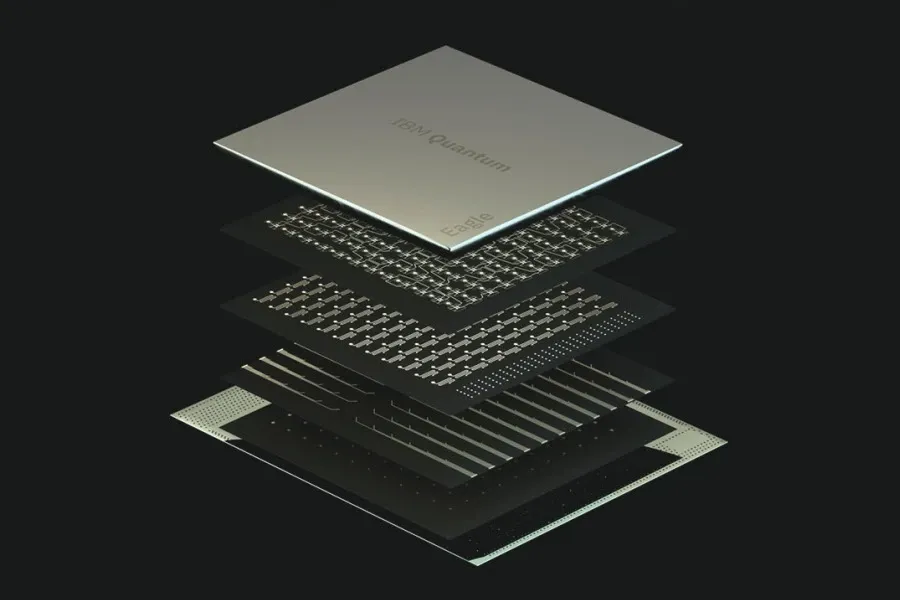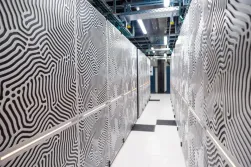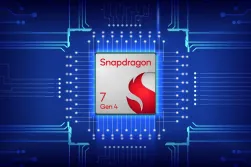IBM announced its new 127-quantum bit (qubit) 'Eagle' processor. The announcement was made at the IBM Quantum Summit 2021, an annual event to showcase milestones in quantum hardware, software, and the growth of the quantum ecosystem.
The 'Eagle' processor is a breakthrough in tapping into the massive computing potential of devices based on quantum physics. It heralds the point in hardware development where quantum circuits cannot be reliably simulated exactly on a classical computer. IBM also previewed plans for Quantum System Two, the next generation of quantum systems.
IBM recently debuted detailed roadmaps for quantum computing, including a path for scaling quantum hardware to enable complex quantum circuits to reach Quantum Advantage, the point at which quantum systems can meaningfully outperform their classical counterpoints. Eagle is the latest step along this scaling path.
'Eagle' is IBM's first quantum processor developed and deployed to contain more than 100 operational and connected qubits. It follows 65-qubit 'Hummingbird' processor unveiled in 2020 and the 27-qubit 'Falcon' from 2019. IBM researchers built on innovations pioneered within its existing quantum processors, such as a qubit arrangement design to reduce errors and an architecture to reduce the number of necessary components. The new techniques leveraged within Eagle place control wiring on multiple physical levels within the processor while keeping the qubits on a single layer, which enables a significant increase in qubits.
The increased qubit count will allow users to explore problems at a new level of complexity when undertaking experiments and running applications, such as optimizing machine learning or modeling new molecules and materials for use in areas spanning from the energy industry to the drug discovery process. 'Eagle' is the first IBM quantum processor whose scale makes it impossible for a classical computer to reliably simulate. The number of classical bits necessary to represent a state on the 127-qubit processor exceeds the total number of atoms in the more than 7.5 billion people alive today.
"The arrival of the 'Eagle' processor is a major step towards the day when quantum computers can outperform classical computers for useful applications," said Darío Gil, Senior Vice President, IBM and Director of Research. "Quantum computing has the power to transform nearly every sector and help us tackle the biggest problems of our time. This is why IBM continues to rapidly innovate quantum hardware and software design, building ways for quantum and classical workloads to empower each other, and create a global ecosystem that is imperative to the growth of a quantum industry.
In 2019, IBM unveiled IBM Quantum System One, the world's first integrated quantum computing system. Since then, the company has deployed these systems as the foundation of its cloud-based Quantum services. As IBM continues scaling its processors, they are expected to mature beyond the infrastructure of Quantum System One. The company has, thus, unveiled a concept for the future: Quantum System Two. It is designed to work with future 433-qubit and 1,121 qubit processors.
"IBM Quantum System Two offers a glimpse into the future quantum computing datacenter, where modularity and flexibility of system infrastructure will be key towards continued scaling," said Jay Gambetta, IBM Fellow and VP of Quantum Computing. "System Two draws on IBM's long heritage in both quantum and classical computing, bringing in more innovations at every level of the technology stack.
Central to Quantum System Two is the concept of modularity. Its design will incorporate a new generation of scalable qubit control electronics together with higher-density cryogenic components and cabling. The prototype is expected to be up and running in 2023.



















